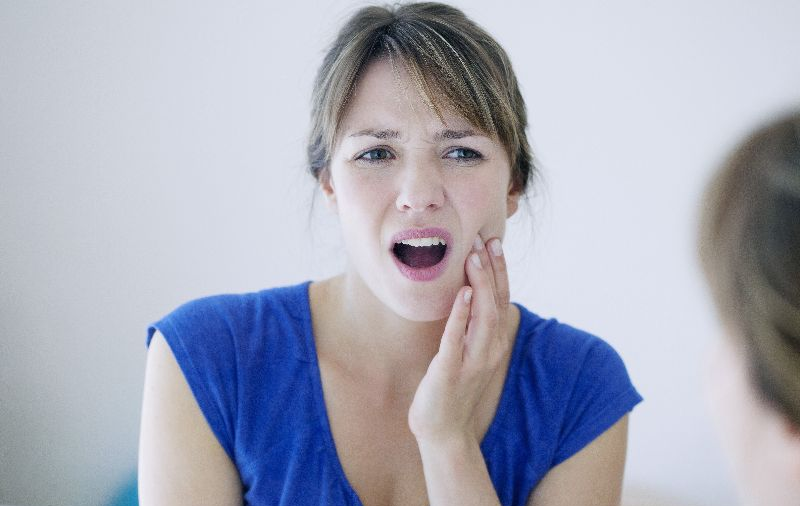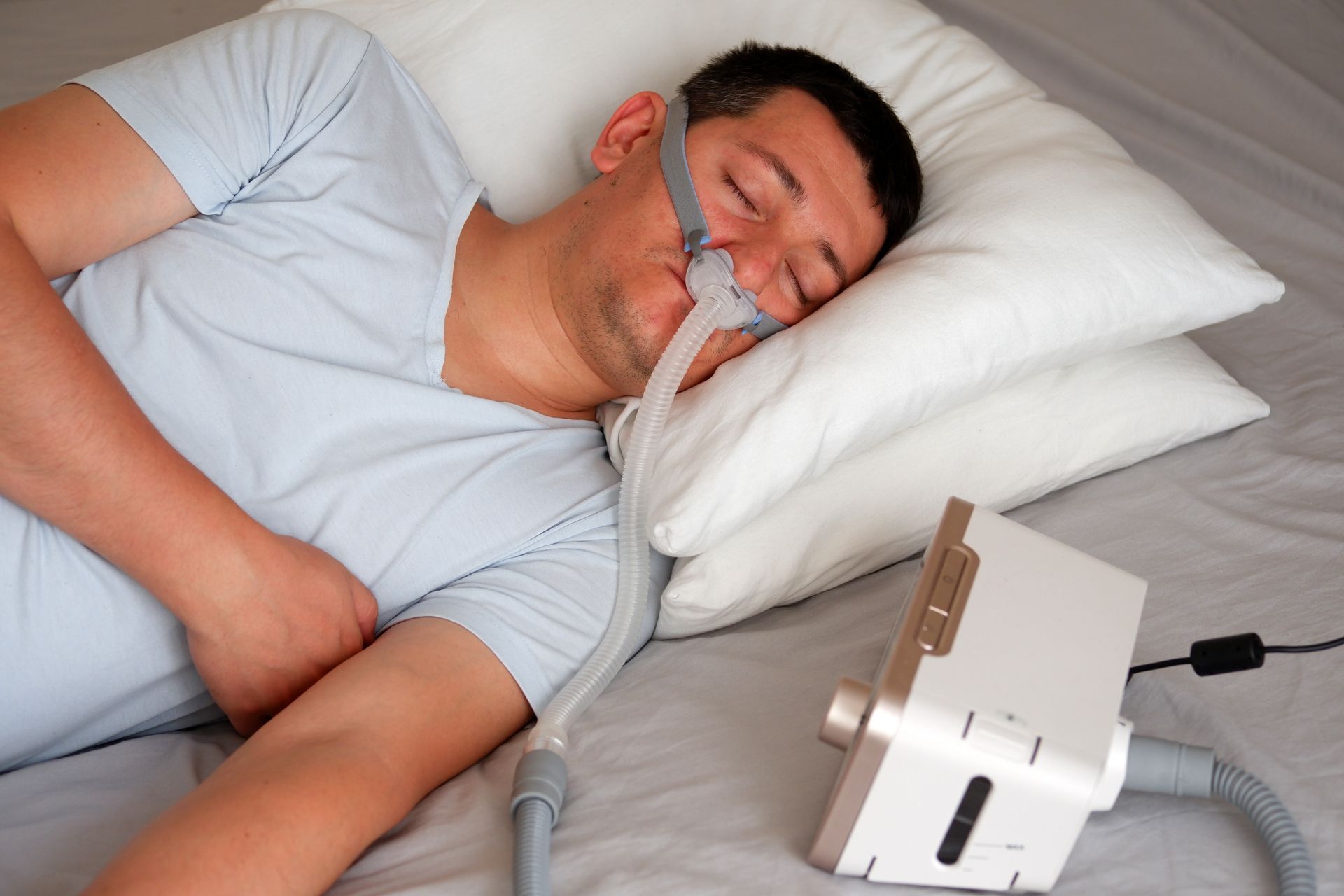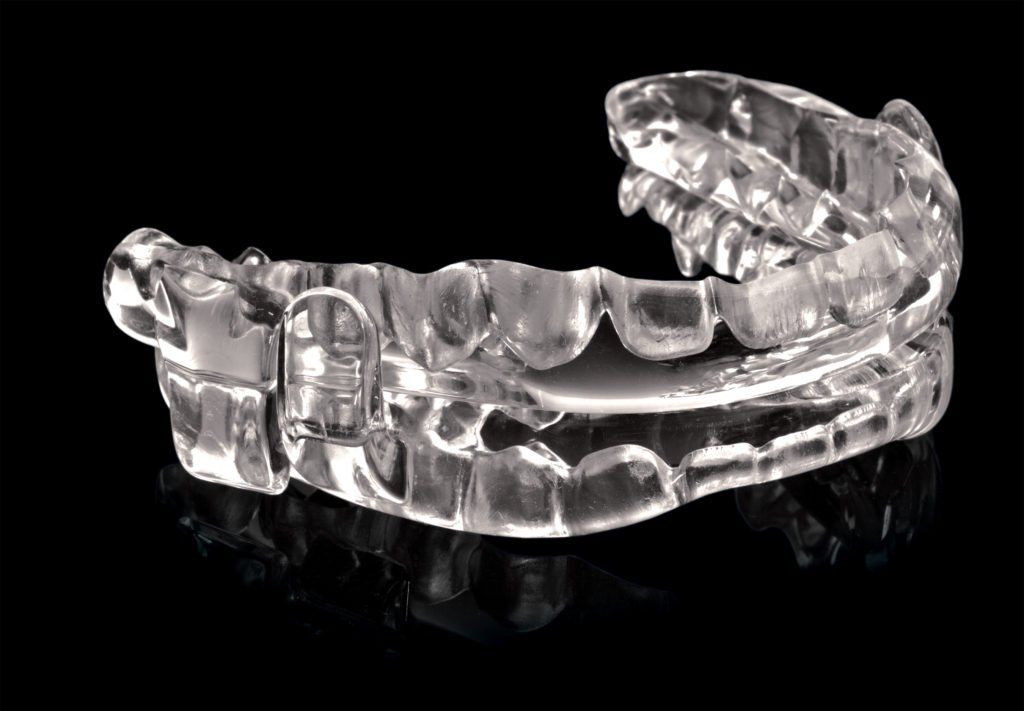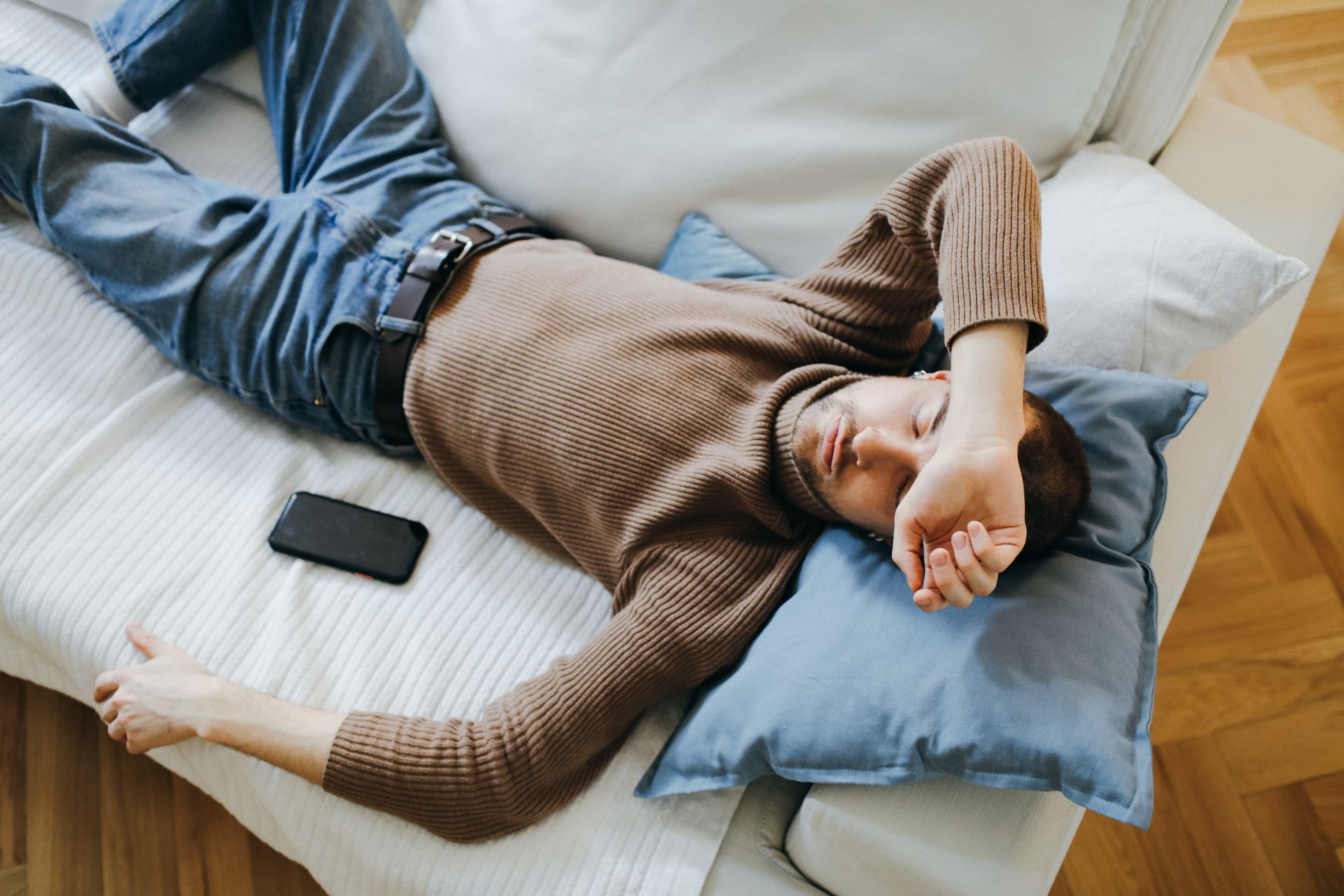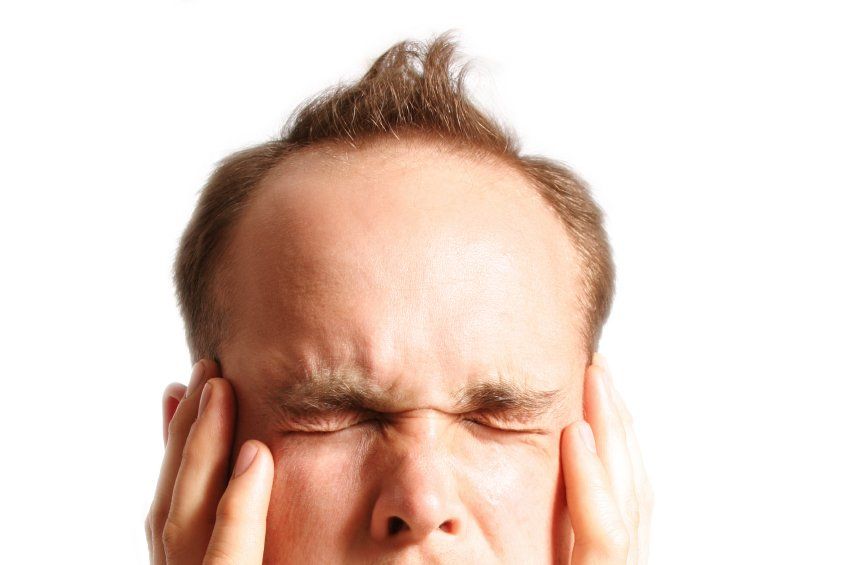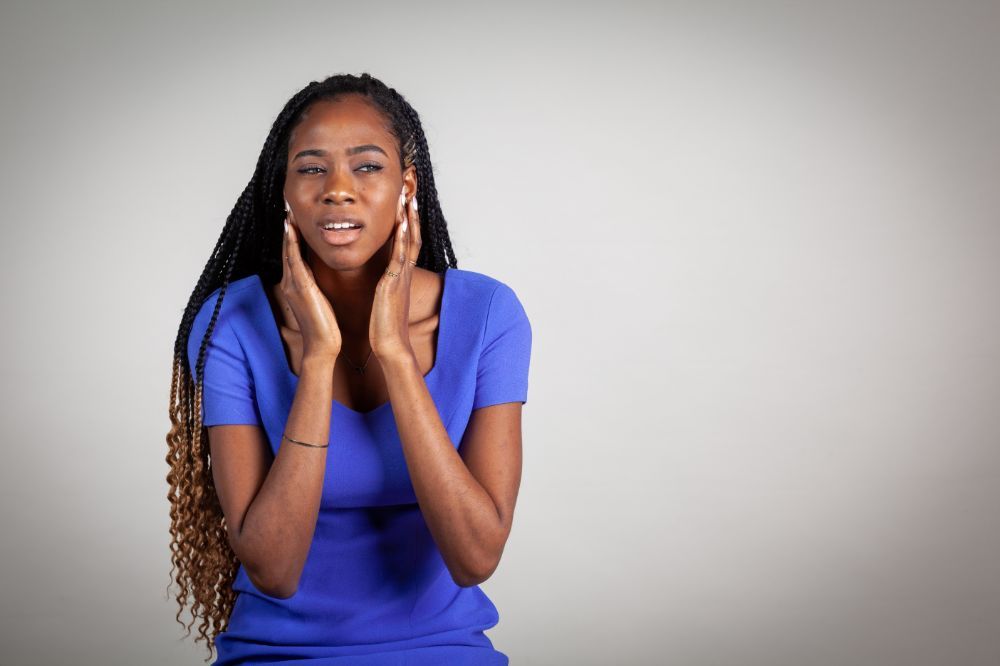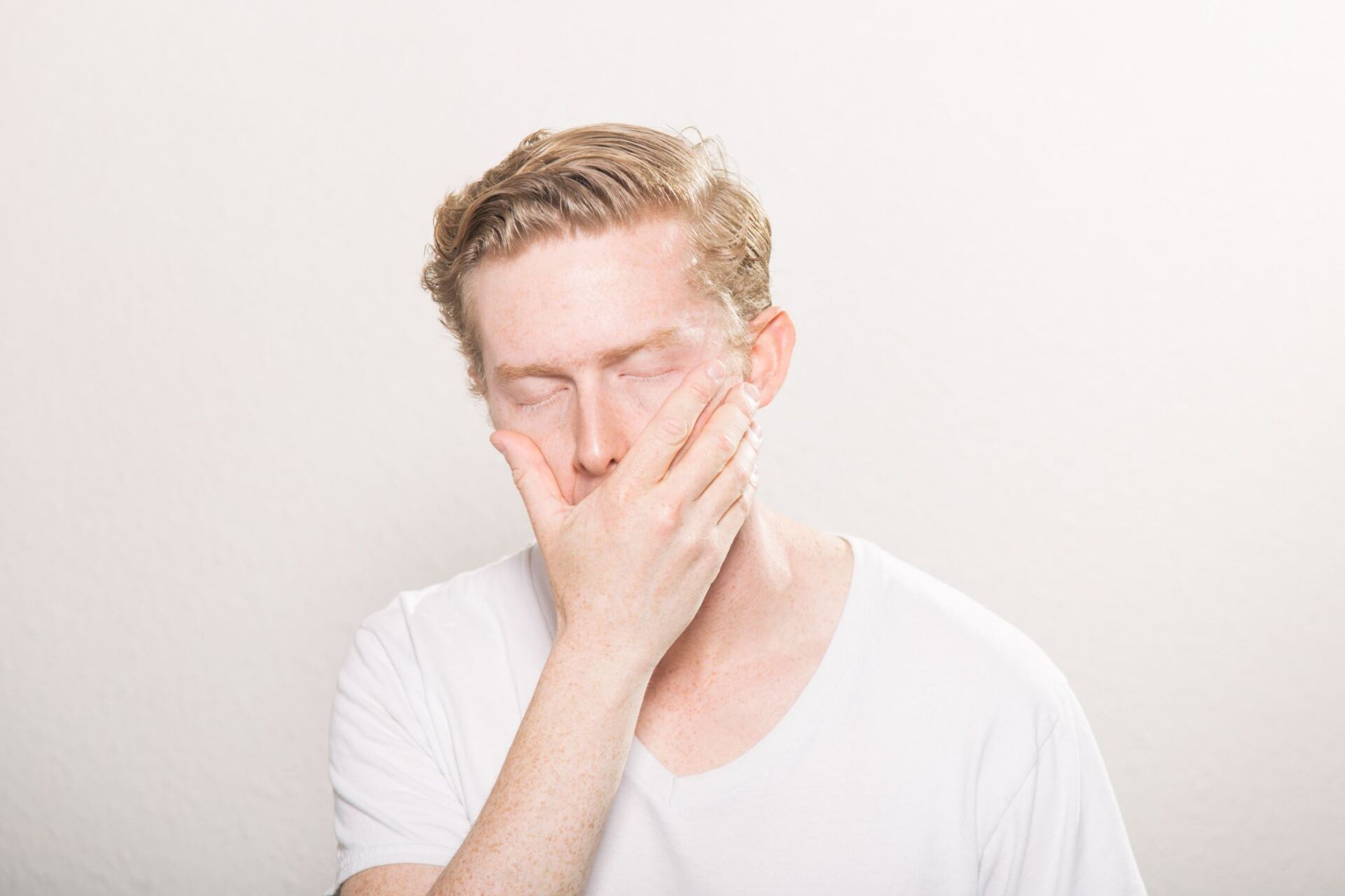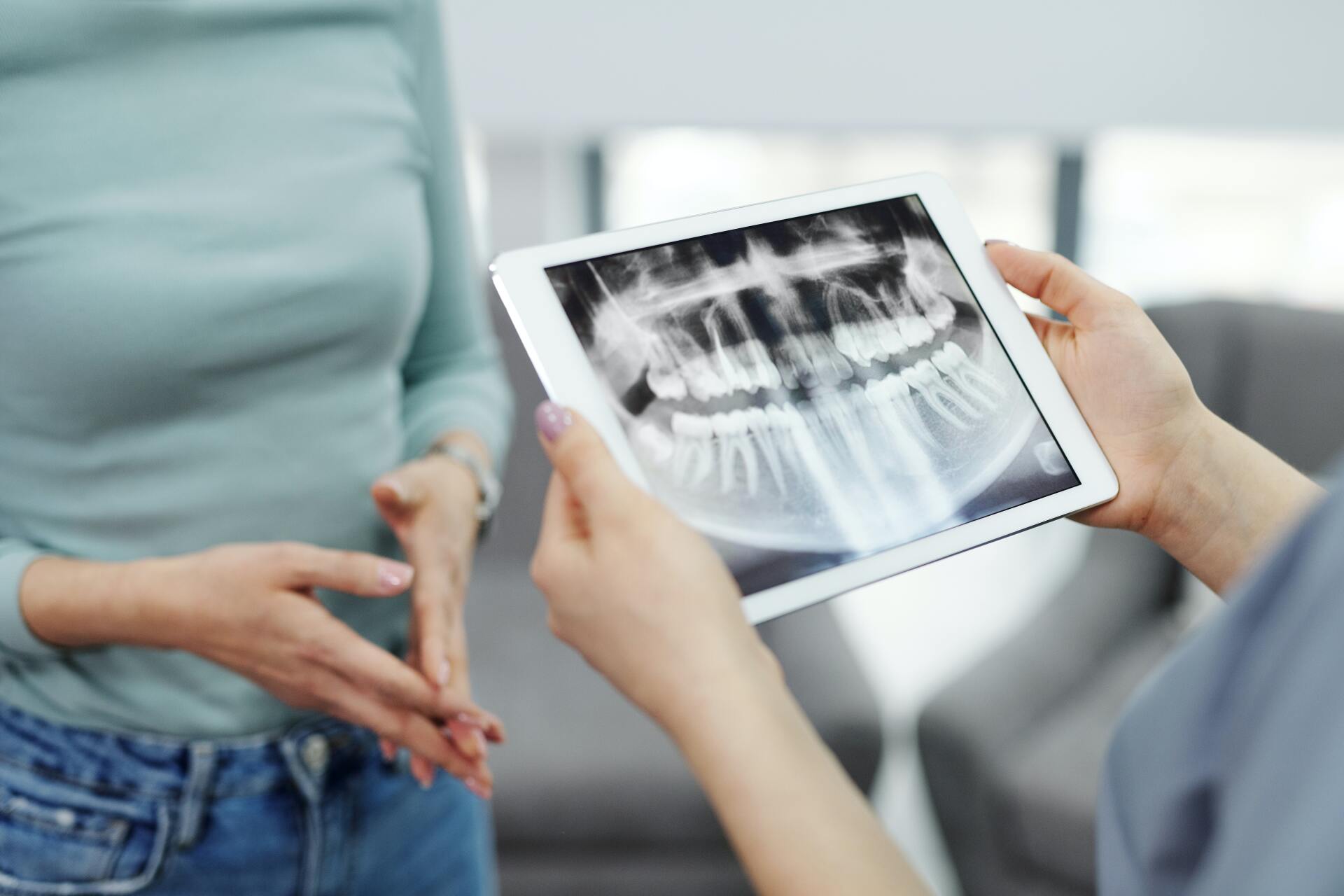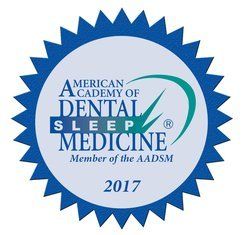Here's Why Your Jaw Is Popping & Clicking
If you've ever had your jaw "pop," it can be an unnerving experience. For one, your jaw is making a sound that, under ideal conditions, it simply shouldn'tshouldn't be making. Second, a popping or clicking jaw is often a sign that you're suffering from a severe dental issue, such as a temporomandibular disorder(TMD).
A popping jaw isn'tisn't always a sign something is wrong, however. If your jaw only pops when you stretch your mouth, especially wide, such as during a deep yawn, it may be a natural result of hyper-extending the joint and connecting tissues.
If your jaw pops while chewing, speaking, or opening your mouth without hyperextending it, this may be a sign of a more severe problem, such as a TMJ disorder.
Fortunately, with over a decade of experience diagnosing and treating thousands of TMJ disorder sufferers, Dr. Katherine Phillips is one of the most experienced TMD treatment specialists in the Greater Houston area. She offers a range of TMJ disorder treatment options so you can eat, smile, chew, and yawn again without discomfort.
What is Jaw Popping?
There are two different ways the jaw might pop. The first occasionally happens with a specific action like that big yawn. When your mouth is almost at its widest opening, the lower jawbone passes over a ridge in the upper jawbone, causing a natural, slight dislocation to allow the stretch. This popping only happens occasionally and is a natural result of hyperextending your jaw.
The second type of jaw popping typically occurs when you open your mouth in everyday activities like talking or eating. It creates an audible clicking sound that is sometimes accompanied by pain. This type of jaw popping with a painful sensation is usually caused by dysfunction of the temporomandibular joints. Your temporomandibular joints are small joints located in front of each ear that connects your jaw to your skull and allows you to move your mouth to speak, chew, and yawn.
Typically, these joints function like a smooth hinge that allows your jaw to move freely. When one of these joints becomes damaged or inflamed due to an injury or disorder, the joint can pop during everyday use. The popping occurs because the smooth movement of the jaw is impaired. Other symptoms, such as pain, difficulty chewing, and Jaw Lock, can also occur.
How TMJ Works
Your temporomandibular joints (TMJs) have a big job to do. They connect your lower jaw to the temporal bones and allow it to move side to side and back to front. This range of movement will enable you to chew food, yawn, and speak. Your facial muscles are attached to the joint to control these movements, and a soft cartilage disc within the socket absorbs large amounts of pressure.
What Causes Your Jaw Clicking?
The jaw consists of a complex system of joints, muscles, and cartilage that all work together to allow you to talk, chew, and otherwise open your mouth. Unfortunately, any of the individual components of your jaw can become misaligned or damaged. In some cases, this could produce a popping or clicking jaw.
For example, the cartilage-like disk inside your jaw joint could dislodge or be displaced. The disc will slip as you close your mouth, producing a quiet popping sound. Next, when you open it again, the disc will reposition itself onto the jaw'sjaw's condyle, creating a louder popping sound. (The condyle is a rounded part of the jawbone right in front of your ear.)
Certain behaviors will increase the risk of the cartilage-like disc being dislocated, including:
- Eating hard foods
- Chewing gum
- Grinding your teeth
- Clenching your jaw
- Chewing on your nails or cheek
Medical conditions can also cause your jaw to pop or click, including:
A physical injury to your jaw/face, such as one suffered during a car accident. In addition to vehicular accidents, common injuries that either dislocate or break the jaw include sports injuries, falling at home, a physical assault to the face, and work-related accidents. You may notice swelling, numbness, bruising, and other symptoms in addition to jaw popping and TMJ pain when damage occurs.
Cartilage damage caused by arthritis. This degenerative joint disease that wears away cartilage can occur in any joint, including the TMJ. Diagnosis is the key to successful management. The sooner a diagnosis is made and treatment begins, the more likely permanent damage to the joint can be avoided, and the degenerative progression slowed down.
Sleep-disordered breathing. TMJ disorder and obstructive sleep apnea (OSA) go hand in hand. OSA occurs when throat muscles relax during sleep, blocking the airway and interrupting breathing. When this happens, your brain moves from rest momentarily to restart breathing. Sometimes teeth grinding occurs during this arousal response. Constant TMJ motion throughout the night as your brain awakens you to restart breathing creates stress and tension in the jaw joint, resulting in TMD.
Autoimmune. Autoimmune diseases cause your immune system to mistakenly attack healthy tissues and joints, resulting in pain, inflammation, and sometimes severe joint damage. Rheumatoid arthritis, psoriatic arthritis, lupus, and other autoimmune diseases have been linked with TMD. Well-managed medical treatment for these conditions and TMD treatment from an expert may help minimize long-term TMJ damage.
Connective tissue disease. Connective tissue disease, often signified by abnormalities in the tissue, bone, and cartilage, can result in generalized joint hypermobility (GJH), a condition where joints can move beyond normal range. Research indicates a connection between TMD and GJH. GJH can lead to TMJ disc displacement/derangement, which can, in turn, cause TMJ popping and pain.
If you suffer from a temporomandibular joint disorder, it could cause your jaw to pop. TMJ disorders, in turn, can be caused by a wide range of factors and conditions. If you believe you're suffering from a TMJ disorder, please review other TMD symptoms.
How to Treat Jaw Popping and TMJ Issues
If your jaw frequently pops, it may indicate a severe underlying dental or medical condition. Failure to seek treatment could allow the condition to worsen, leading to a more severe issue. This is why it's essential to seek medical treatment. This is especially true if the popping is accompanied by pain, as extreme pain may indicate a severe problem that causes damage each time the jaw pops. Many treatment options are available if you are diagnosed with a TMJ disorder.
Non-medical Treatments for TMJ Issues
In many cases, home treatment can help decrease the occurrence of jaw popping and accompanying pain. You may not need professional treatment if the popping is irregular and the pain is mild. Keep in mind, however, that the condition could worsen if the joint is damaged further. These non-medical treatments can be used to reduce your symptoms.
- OTC medications such as Ibuprofen can help reduce inflammation.
- Apply an ice pack to the affected area on the jaw for 10-15 minutes, followed by a warm compress for 5 to 10 minutes to relieve the pain.
- Avoid eating crunchy, chewy, or hard foods, including raw vegetables and fruits.
- Relax the jaw when possible and watch for jaw clenching.
- Avoid activities that involve opening the mouth too wide, such as singing, yelling, or chewing gum.
If the above treatments are not working, the pain is severe, or your condition worsens, seek treatment from an experienced professional like Dr. Phillips.
Professional/Medical Treatments for TMJ Issues
Unfortunately, home remedies and over-the-counter drugs are often insufficient to treat popping jaws and other TMJ symptoms. Fortunately, dental experts like Dr. Phillips can provide lasting pain relief by using the latest medical practices and treatments.
Potential medical treatments for popping jaw include:
- Oral appliance therapy for OSA using a mouthguard or splint can prevent or manage bruxism (clutching and grinding of the sleep during sleep).
- You can use prescribed medication to help manage pain caused by TMJ issues.
- Laser or radio wave therapy helps stimulate movement and ease pain in the jaw, mouth, and neck.
- Physical Therapy can loosen muscles, increase the range of motion and increase blood flow to the joint.
- Injections of lubricating agents into the joint.
- As a last resort, surgery may be required, although this is rare.
Long Term Outlook
The outlook for a TMJ disorder depends on a few factors. Many cases of TMJ disorder respond to simple, conservative treatment, and the prognosis is good. If a chronic, underlying health condition such as an autoimmune disease is thought to be the cause, then how well this condition is managed can affect how or if TMD progresses and to what extent. In either case, proper diagnosis and treatment from a TMJ expert can help prevent pain and discomfort and prevent further TMJ damage.
Jaw "Popping" Frequently Asked Questions
Is it normal for my jaw to "pop," " click," or " crack"?
Yes and no. When you open your jaw wide, such as during a deep yawn, the lower jawbone passes over a ridge in the upper jawbone. This may produce a popping or clicking sound, which is usually nothing to be alarmed about. However, a popping/clicking sound when you are talking or chewing may involve the displacement of a cartilage-like disc inside the joint. This can result in TMJ disorder, and you should seek diagnosis and treatment.
How can I keep (prevent) my jaw from popping?
Avoid opening your mouth extra wide. Avoid TMJ overuse by limiting or stopping gum chewing, crunching on ice, and eating lots of hard or chewy foods. Get treated for conditions
that may contribute to jaw popping, such as bruxism (tooth grinding), which overworks the TMJ.
Should I be concerned that my jaw is popping on only my right or left side?
TMJ disorder can affect one or both TMJs. So, whether one or both sides are popping, it's crucial to seek a diagnosis and appropriate treatment.
Why does my jaw pop and then lock up?
One of the scarier symptoms of TMJ disorder is the jaw locking in an open or shut position. A popping sound followed by a locked jaw typically signifies the disc has slipped out of the TMJ, which prevents it from moving and functioning properly.
Why is my jaw sore after popping or clicking?
If your jaw is sore after popping, it may be due to the ligament that controls the disc being stretched or the muscles that control jaw movement being affected and possibly inflamed due to TMD.
Is it possible to permanently fix my jaw popping?
It depends on the cause being correctly identified and treated and on the extent to which the jaw has been damaged due to injury, underlying conditions such as osteoarthritis, and more. Generally, mild TMJ disorder and jaw-popping cases can be fixed with conservative treatment measures under a TMD expert such as Dr. Katherine Phillips.
Contact Dr.Phillips Today
A popping jaw may indicate a severe TMJ disorder; your condition could worsen if left untreated. Fortunately, TMJ experts like Dr. Phillips can work with you closely to provide both immediate pain relief and lasting solutions. Please schedule an appointment with our Houston, TX TMJ Dentist and get the treatment you deserve!
Contact Us Today For A Consultation!
Contact Us
Thank you for reaching out to us at REstore TMJ and Sleep Therapy. We look forward to helping you. We will follow up within 24 hours for contact requests received during normal office hours Monday – Thursday. If you have submitted a request later in the day on Thursday – Sunday, we will follow up on Monday. If you would like to talk to us before we can get to your request, please feel free to give us a call at 281-296-6797 Monday – Thursday 8am – 4:30pm. Have a great day!
Regards,
Dr. Katherine Phillips and Staff
Please try again later.
REstore TMJ & Sleep Therapy P.A.
1001 Medical Plaza Drive,
Suite 200 | The Woodlands, TX 77380
281-296-6797
Dr. Phillips serves TMJ & Sleep patients in: The Woodlands TX | Spring TX | Conroe TX Tomball TX | Cypress, TX | Houston, TX | Kingwood TX | Humble, TX | Katy TX
© 2023 by REstore TMJ & Sleep Therapy | Terms Of Service & Privacy Policy | XML Sitemap
-2700x842-1920w.png)




